
Tanga: The Hidden Gem of Tanzania's Coastline
Tanga, a coastal city in northern Tanzania, offers a unique blend of history, culture, and natural beauty. Once a pivotal port during the German colonial era, Tanga is now a serene escape for travelers seeking to explore authentic Tanzanian life. The city is less crowded than Tanzania's more famous destinations, which adds to its charm and appeal for those looking to avoid the tourist rush. The city's coastline is dotted with beautiful beaches and mangrove forests, perfect for a day of relaxation or a boat tour. Beach lovers will appreciate the pristine sands and clear waters, while history buffs can explore the remnants of colonial architecture and old railway lines that tell the tale of Tanga's storied past. Don't miss a visit to the Amboni Caves, one of the largest limestone cave systems in East Africa, offering a fascinating underground adventure. Tanga's vibrant markets, such as the Central Market, are a feast for the senses, brimming with fresh produce, spices, and local handicrafts. The city's culinary scene is equally enticing, with a mix of Swahili cuisine and international flavors. From street food stalls to charming restaurants, there's something to satisfy every palate. For a deeper cultural experience, engage with the friendly locals who are always eager to share their stories and traditions.
Local tips in Tanga
- Visit the Amboni Caves early in the morning to avoid crowds and enjoy the peaceful atmosphere.
- Take a guided tour to fully appreciate the historical significance of Tanga's colonial architecture.
- Explore the local markets and try Swahili street food for an authentic culinary experience.
- Carry cash as many local vendors and smaller establishments do not accept credit cards.
- Hire a local guide for a boat tour through the mangrove forests to learn about the unique ecosystem.
- Visit during the dry season (June to October) for the best weather conditions.
Tanga: The Hidden Gem of Tanzania's Coastline
Tanga, a coastal city in northern Tanzania, offers a unique blend of history, culture, and natural beauty. Once a pivotal port during the German colonial era, Tanga is now a serene escape for travelers seeking to explore authentic Tanzanian life. The city is less crowded than Tanzania's more famous destinations, which adds to its charm and appeal for those looking to avoid the tourist rush. The city's coastline is dotted with beautiful beaches and mangrove forests, perfect for a day of relaxation or a boat tour. Beach lovers will appreciate the pristine sands and clear waters, while history buffs can explore the remnants of colonial architecture and old railway lines that tell the tale of Tanga's storied past. Don't miss a visit to the Amboni Caves, one of the largest limestone cave systems in East Africa, offering a fascinating underground adventure. Tanga's vibrant markets, such as the Central Market, are a feast for the senses, brimming with fresh produce, spices, and local handicrafts. The city's culinary scene is equally enticing, with a mix of Swahili cuisine and international flavors. From street food stalls to charming restaurants, there's something to satisfy every palate. For a deeper cultural experience, engage with the friendly locals who are always eager to share their stories and traditions.
When is the best time to go to Tanga?
Iconic landmarks you can’t miss
Tanga Beach Resort
Experience the ultimate coastal retreat at Tanga Beach Resort, where relaxation meets adventure in the heart of Tanzania.

Mkonge Hotel / Tanga
Discover the charm of Tanga while enjoying a cozy stay at Mkonge Hotel, your gateway to the breathtaking sights of northern Tanzania.

Magoroto Forest Estate
Experience the tranquility of Magoroto Forest Estate in Tanzania, where nature meets luxury for an unforgettable retreat in the heart of the forest.

Cappucino cafeteria
Discover the cozy charm of Cappuccino Cafeteria in Tanga, Tanzania, where delightful coffee and light meals await in a welcoming atmosphere.
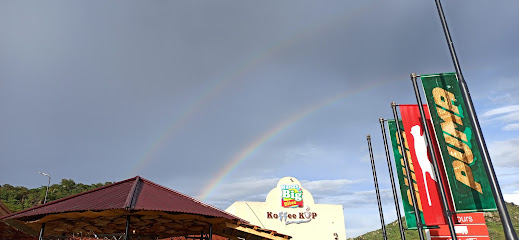
Blue Room Cafe
Experience the local coffee culture at Blue Room Cafe in Tanga, where every sip tells a story and every visit feels like home.
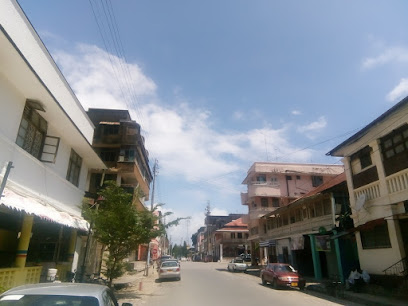
Sizzler Corner
Discover the authentic tastes of Tanzania at Sizzler Corner, Tanga's beloved restaurant offering a diverse menu in a welcoming atmosphere.
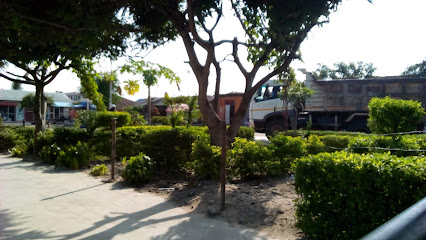
Amboni Caves
Uncover the secrets of the Amboni Caves, Tanzania's largest limestone cave system, where nature's artistry meets captivating folklore.
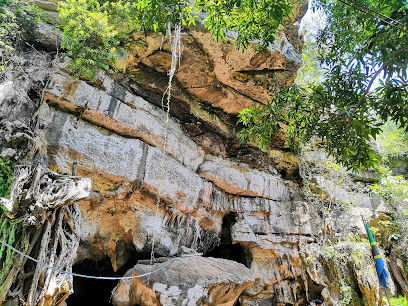
Tanga Yacht Club
Discover Tanga Yacht Club, where sailing meets vibrant local culture against the stunning backdrop of the Indian Ocean.
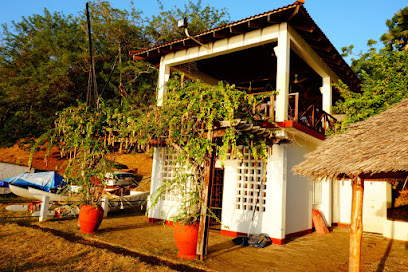
THE KITCHEN CAFE
Experience the vibrant flavors of Tanga at The Kitchen Cafe, where local cuisine meets a welcoming atmosphere for every traveler.
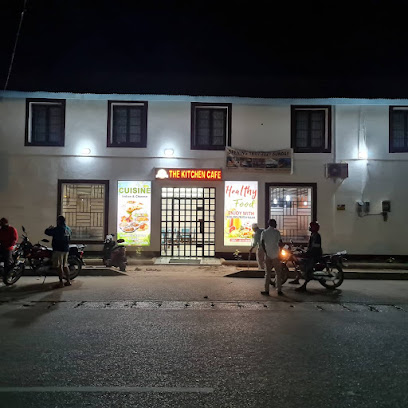
Mgandini Market
Explore the vibrant Mgandini Market in Tanga, a cultural hub bursting with fresh produce, local delicacies, and the spirit of Tanzania.
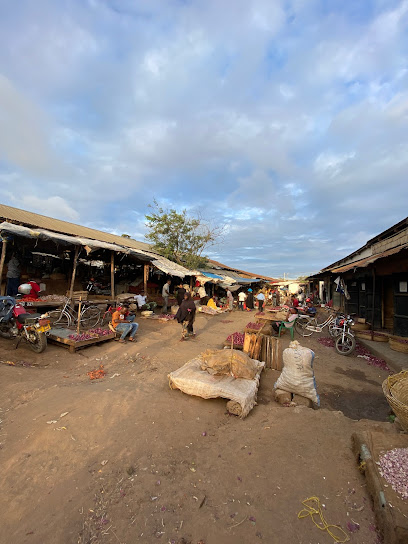
URITHI Tanga Museum
Explore the rich history and vibrant culture of Tanga at URITHI Tanga Museum, a must-visit destination for all travelers.
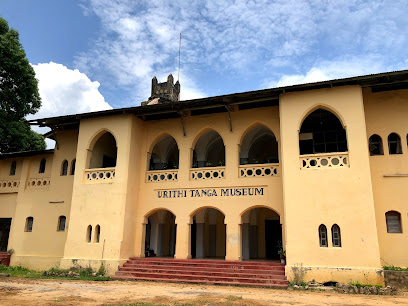
S.D. Supermarket nasco
Discover the tastes of Tanzania at S.D. Supermarket Nasco, a vibrant marketplace in Tanga offering local and international products for all your needs.
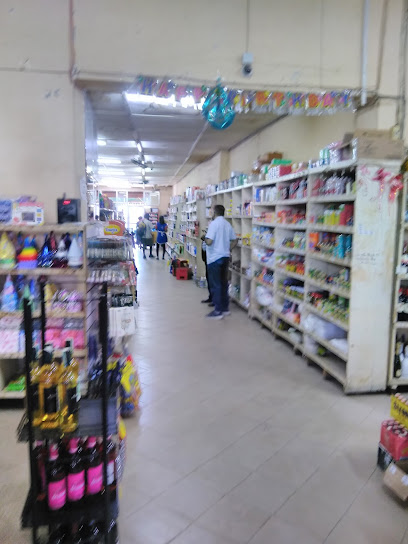
Tanga Airport
Discover Tanga, Tanzania - your gateway to stunning beaches, rich history, and vibrant culture. Tanga Airport welcomes you to your next adventure.
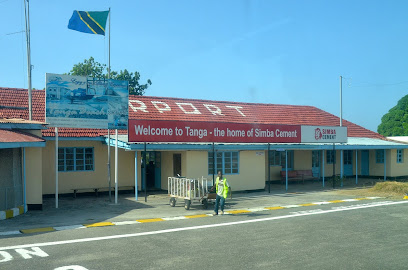
World War 1 Graves
Explore the serene World War 1 Graves in Tanga, a historical garden that honors the sacrifices of soldiers amidst lush greenery.
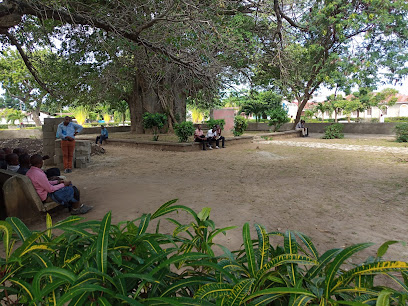
New Majestic Cinemas
Discover the vibrant cinematic scene at New Majestic Cinemas in Tanga, showcasing a variety of films in a comfortable and modern setting.
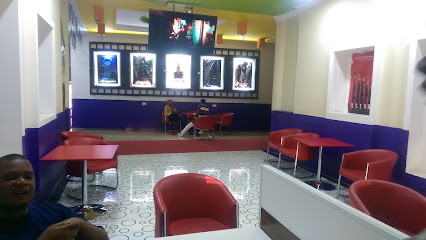
Unmissable attractions to see
Forodhani
Explore the lush landscapes and ocean views at Forodhani Garden, a tranquil oasis in Tanga, Tanzania, perfect for relaxation and cultural experiences.
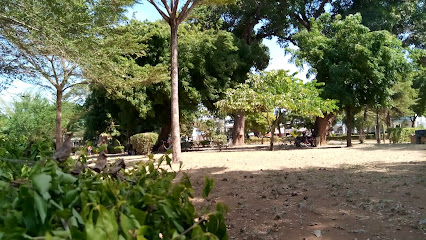
Amboni Caves
Explore the enchanting Amboni Caves, Tanzania's largest limestone cave system, rich in history and geological wonders.
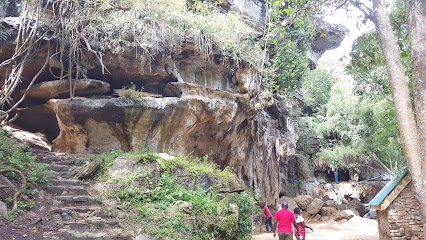
URITHI Tanga Museum
Explore the vibrant cultural heritage of Tanzania at URITHI Tanga Museum, where history comes alive through captivating exhibits and local stories.
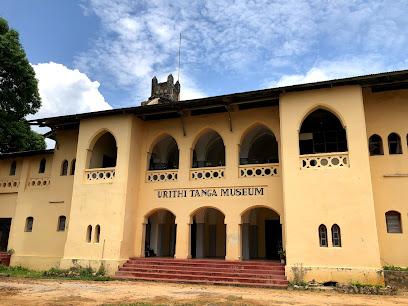
World War 1 Graves
Explore the World War 1 Graves in Tanga - a serene memorial garden honoring the sacrifices of soldiers amidst lush landscapes.
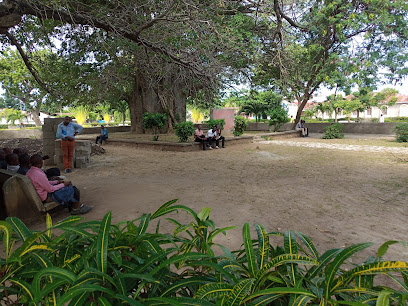
Raskazon Beach Jet
Experience the serene beauty of Raskazon Beach Jet in Tanga, Tanzania, a perfect blend of relaxation and adventure on the stunning coastline.
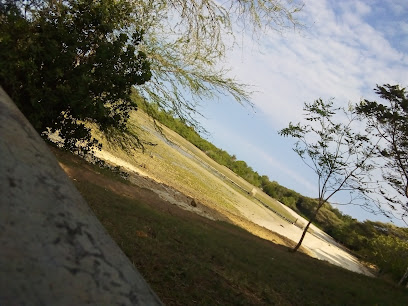
Jenopek Garden
Explore the lush beauty and serene atmosphere of Jenopek Garden in Tanga, a perfect retreat for nature lovers and tranquility seekers.
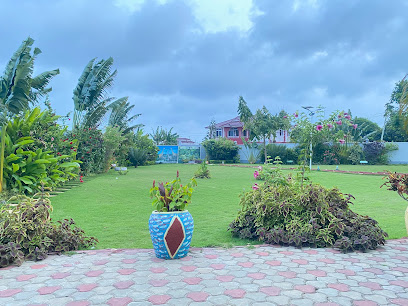
Tanga lagoon beach park
Discover the serene beauty of Tanga Lagoon Beach Park, a coastal paradise perfect for relaxation, picnics, and breathtaking sunsets in Tanzania.
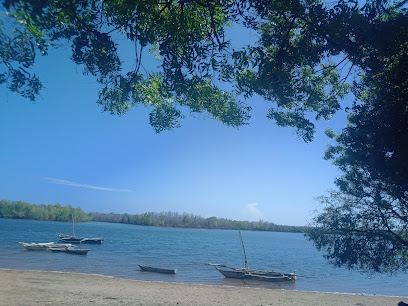
Tanga Coelacanth Marine Park
Explore Tanga Coelacanth Marine Park: A hidden gem of marine biodiversity and stunning underwater adventures along Tanzania's coast.
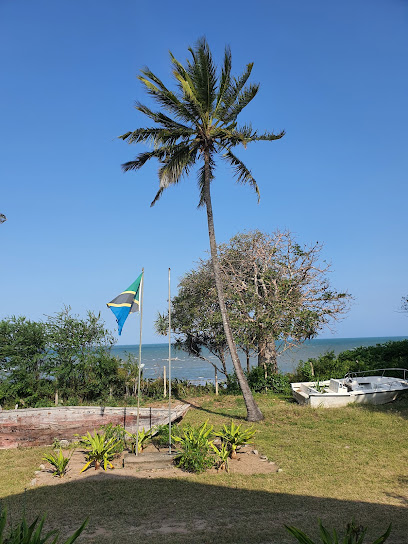
Sakarani Garden
Explore Sakarani Garden in Tanga, a serene escape filled with lush greenery and vibrant flora, perfect for relaxation and photography enthusiasts.
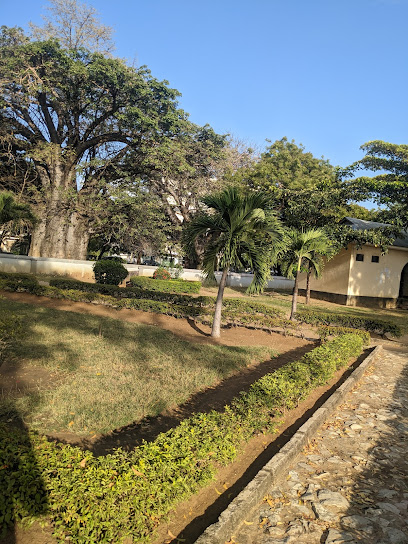
Jenopek Luxury Garden
Experience tranquility and beauty at Jenopek Luxury Garden, a lush escape in Tanga, Tanzania, where nature and relaxation intertwine.
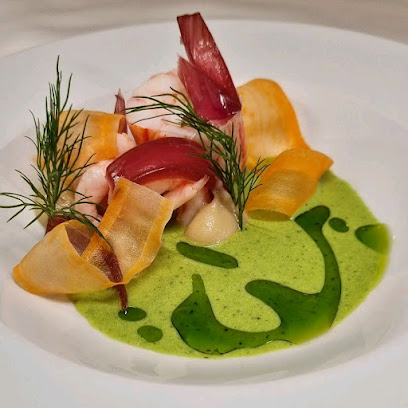
Sandbanks Tanga
Experience the breathtaking beauty of Sandbanks Tanga, a stunning coastal paradise in Tanzania, perfect for relaxation and adventure.
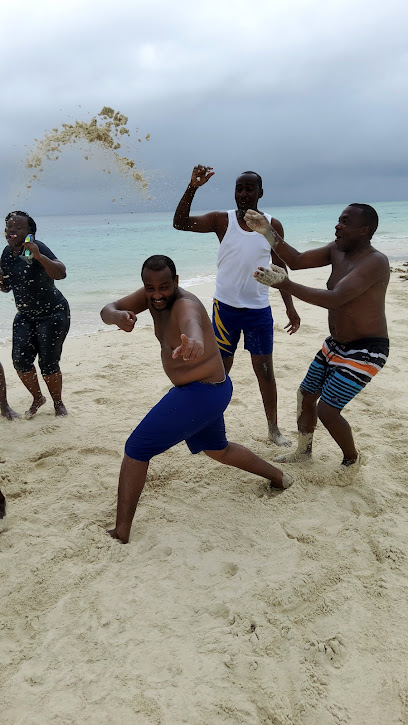
Ulenge Island Marine Reserve
Explore Ulenge Island Marine Reserve, a hidden gem in Tanzania, where pristine beaches and vibrant marine life await every nature lover.

Sulphur Hot spring
Experience the therapeutic Sulphur Hot Springs of Mabokweni Village, a natural oasis perfect for relaxation amidst stunning scenery.

Pandora Glamping Taverns
Experience the perfect blend of adventure and luxury at Pandora Glamping Taverns in Tanga, Tanzania, where nature meets comfort.
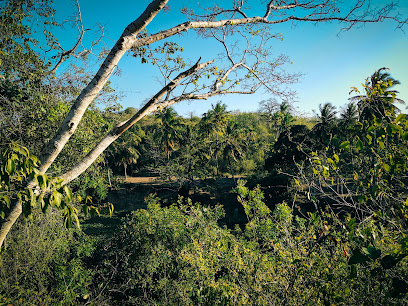
Kigoma
Discover Kigoma, a vibrant town in Tanzania offering breathtaking views of Lake Tanganyika and rich cultural experiences amidst stunning natural landscapes.

Essential places to dine
Dolphin Hotel and Restaurant
Discover culinary delights at Dolphin Hotel & Restaurant in Tanga - where local flavors meet stunning coastal views.
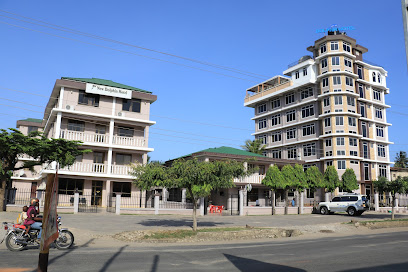
Cappucino cafeteria
Discover the cozy charm of Cappucino Cafeteria in Tanga - where delicious coffee meets inviting ambiance.
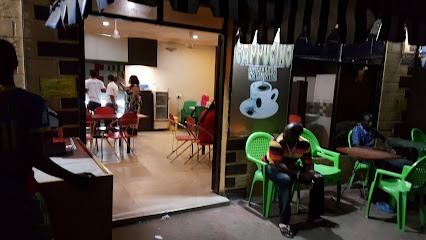
Sizzler Corner
Experience the vibrant flavors of Tanzania at Sizzler Corner, where delicious food meets warm hospitality in Tanga.
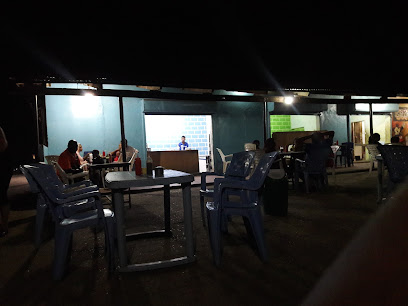
Babsalum Barbeque, Chumbageni
Discover authentic Tanzanian barbeque at Babsalum Barbeque in Chumbageni, Tanga - where flavor meets affordability.
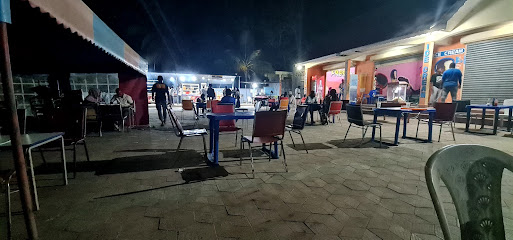
Nyinda Garden Park
Experience tranquility and culture at Nyinda Garden Park – Tanga's lush green haven perfect for relaxation and exploration.
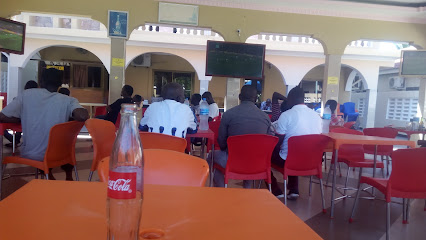
Pizzeria D'Amore
Discover the authentic taste of Italy at Pizzeria D'Amore in Tanga—where every slice tells a delicious story.
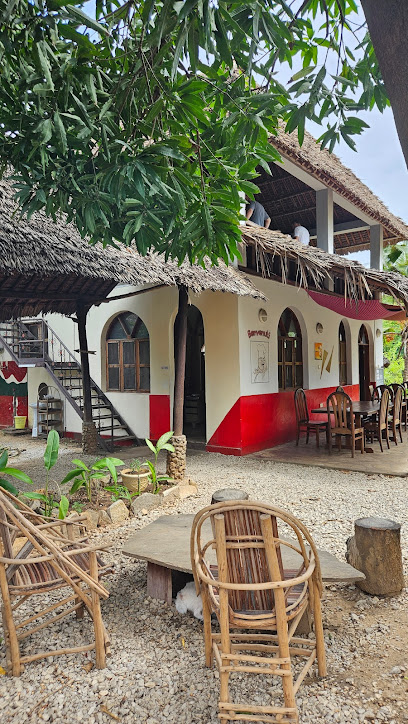
THE KITCHEN CAFE
Discover the flavors of Tanzania at The Kitchen Cafe in Tanga—where every meal is a celebration of taste and culture.
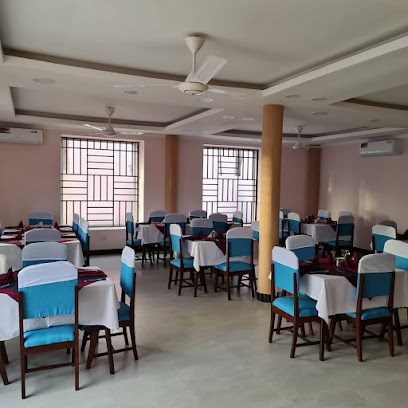
Kitisa's Restaurant (FastFood)
Experience the vibrant flavors of Tanzania at Kitisa's Restaurant in Tanga - where fast food meets local culinary delights.
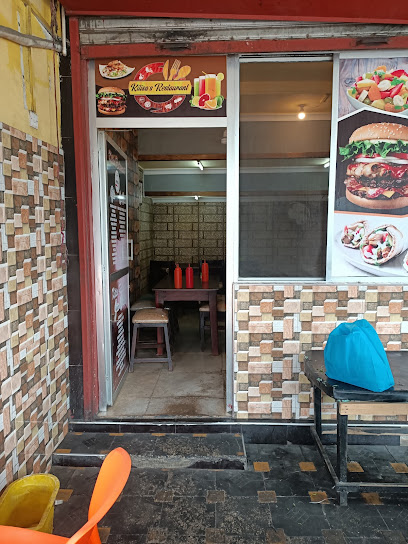
Nyinda 2
Discover the vibrant tastes of Tanzania at Nyinda 2 - where local flavors meet international flair in Tanga's culinary scene.
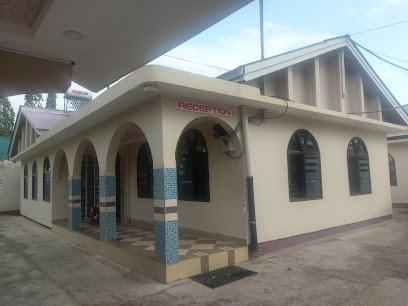
Kitisa Restaurant (Continental, Grills & Desserts)
Discover the best of continental cuisine at Kitisa Restaurant in Tanga – where every meal is a celebration of flavors.
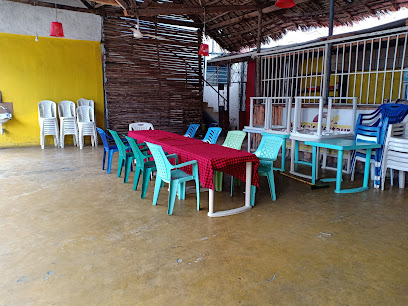
Bukhari Restaurant Tanga
Experience authentic Tanzanian flavors at Bukhari Restaurant in Tanga – where every dish tells a story.
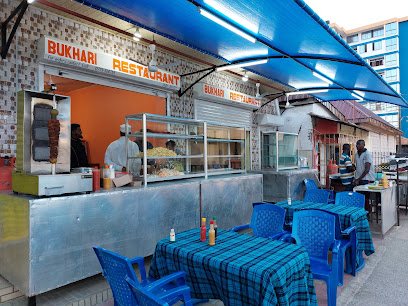
Kibarua Restaurant
Discover authentic Tanzanian flavors at Kibarua Restaurant in Tanga—where every meal tells a story.
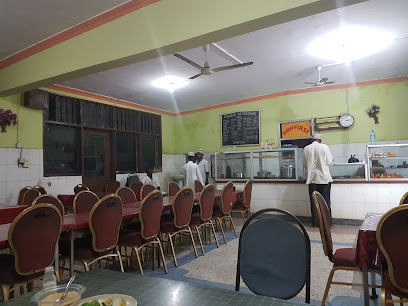
Kwa Manka
Experience authentic Tanzanian cuisine at Kwa Manka in Tanga - where delicious flavors meet warm hospitality.
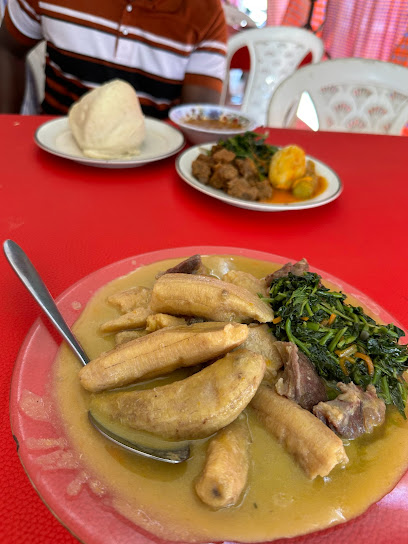
G.Tayebji Restaurant
Discover authentic Tanzanian flavors at G.Tayebji Restaurant in Tanga - where every meal is a celebration of local cuisine.
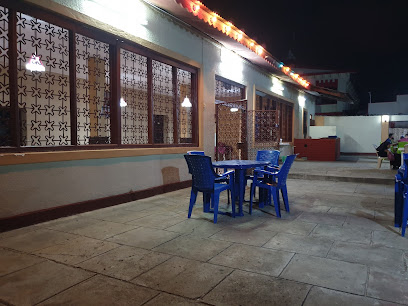
Cosmopolitan Restaurant And Bistro
Experience the best of local and international cuisine at Cosmopolitan Restaurant And Bistro in Tanga - where every meal is a celebration.
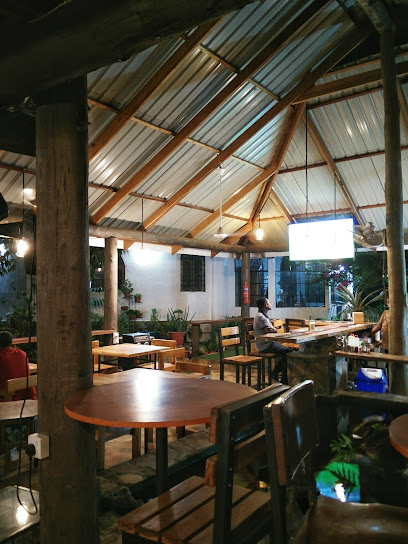
Markets, malls and hidden boutiques
Fakhri Store
Discover Fakhri Store in Tanga: your go-to hardware store for quality tools, friendly service, and a taste of local culture.
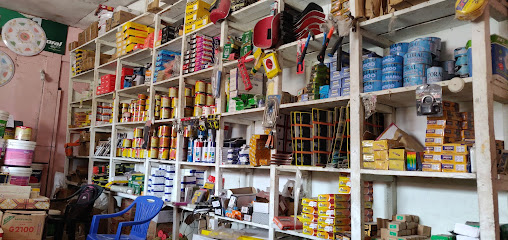
Donge Mwisho
Explore Donge Mwisho in Tanga for exquisite home goods that capture the essence of Tanzanian craftsmanship and culture.
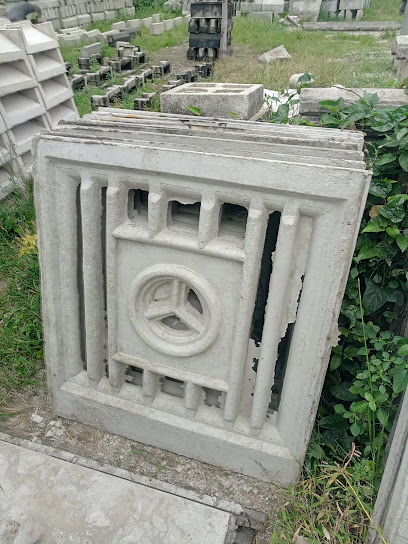
SAIFI STORE
Discover local hardware supplies and a vibrant shopping experience at Saifi Store in Tanga, Tanzania.

saifee general store
Discover the charm of Tanga at Saifee General Store, where local products and friendly service create a unique shopping experience.

Yogi hadware
Discover the vibrant essence of Tanga at Yogi Hadware, where local crafts and everyday goods come together for an unforgettable shopping experience.

Tanga Market
Explore Tanga Market, where local culture comes alive with vibrant goods, delicious food, and the warmth of Tanzanian hospitality.
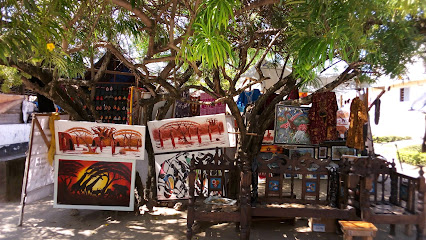
Nasser Shop
Discover the vibrant culture of Tanga at Nasser Shop, your go-to destination for authentic Tanzanian products and local craftsmanship.
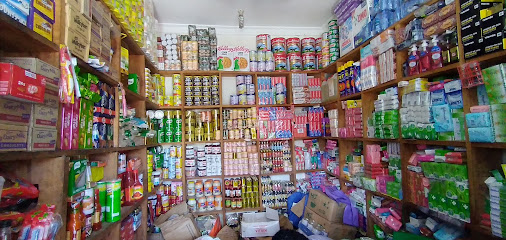
JUMANA SHOP
Explore the vibrant JUMANA SHOP in Tanga for a unique blend of fashion, cosmetics, and accessories, capturing the spirit of Tanzanian style.
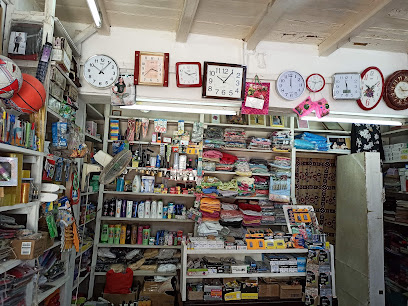
Tidas Shop
Explore the vibrant offerings of Tidas Shop in Tanga, where local crafts meet delightful shopping experiences.
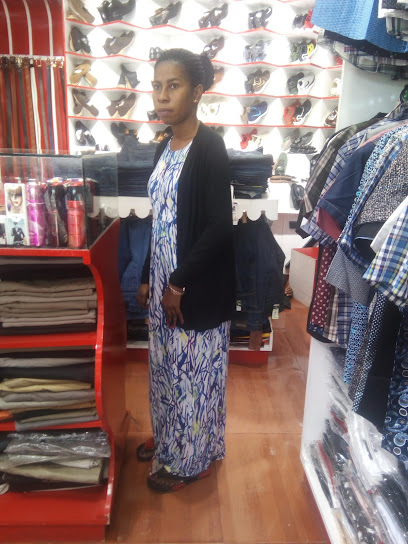
VUNJABEI
Explore the vibrant clothing collection at VUNJABEI in Tanga, where local culture meets contemporary fashion for an unforgettable shopping experience.

Chimbo Jipya (Duka La Nguo)
Discover vibrant styles and authentic Tanzanian fashion at Chimbo Jipya in Tanga, where local craftsmanship meets modern trends.

KWABIKIUNO
Discover authentic Tanzanian crafts and unique souvenirs at KWABIKIUNO in Tanga, where local culture meets vibrant artistry.
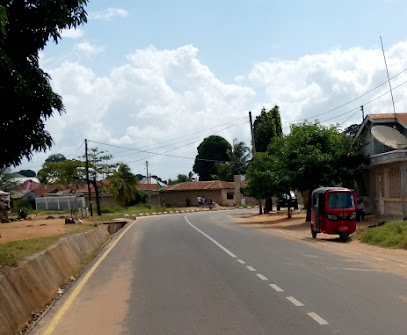
Brazia point
Discover unique women's fashion at Brazia Point in Tanga, where local culture meets modern elegance in a vibrant shopping experience.
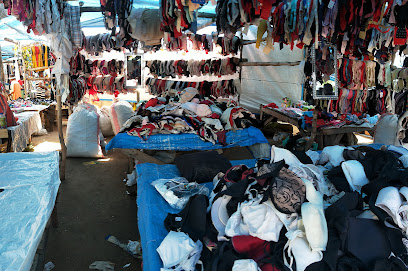
Mabawa Tropikana
Explore the vibrant local culture at Mabawa Tropikana, a must-visit store in Tanga, offering unique souvenirs and authentic Tanzanian crafts.

Shop Touch Me
Explore Touch Me, Tanga's top cosmetics store, where beauty meets quality, and every visit is a celebration of self-care and local charm.
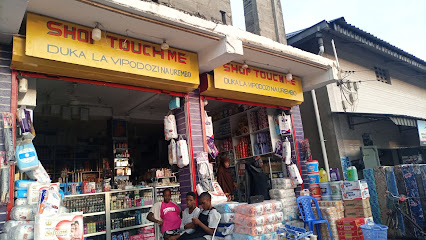
Essential bars & hidden hideouts
Tanga Pazuri Sports
Discover the vibrant nightlife of Tanga at Tanga Pazuri Sports, a lively bar perfect for socializing and enjoying local culture.
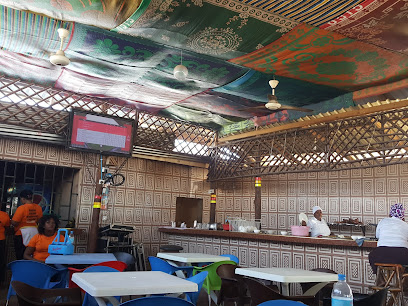
Ben Bistro
Experience the vibrant flavors of Tanzania at Ben Bistro, Tanga's premier lounge for gourmet dining and local cuisine.

THINKERS PUB & LOUNGE
Discover the vibrant nightlife at THINKERS PUB & LOUNGE in Tanga, where delicious drinks and a lively atmosphere await you.
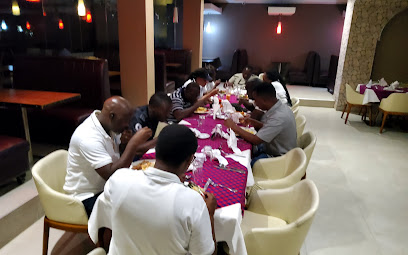
Maisha Pub, Duga
Discover the vibrant atmosphere of Maisha Pub in Duga, Tanga, where locals and tourists come together to enjoy drinks and snacks in a lively setting.
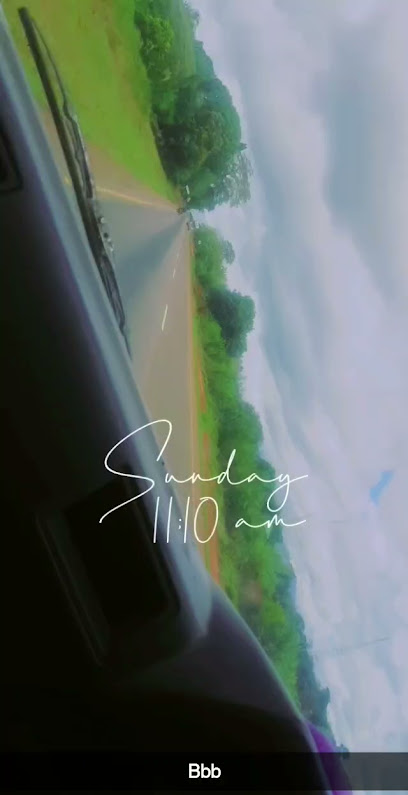
Signature Lounge Tanga
Experience the vibrant atmosphere and stunning views at Signature Lounge Tanga, where great drinks meet coastal charm.
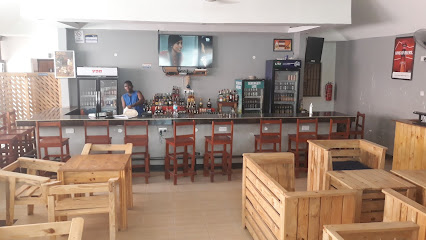
Amazon BAR
Experience the vibrant nightlife of Tanga at Amazon BAR, where local culture meets refreshing drinks and unforgettable entertainment.
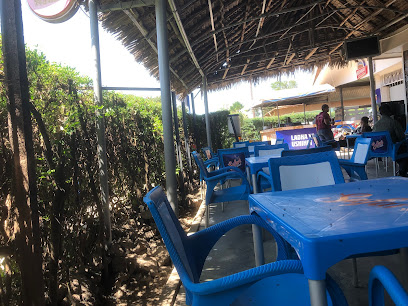
ABC Bar
Experience the vibrant atmosphere and refreshing drinks at ABC Bar in Tanga, where locals and tourists gather to unwind and socialize.

Kilimanjaro Bar
Experience the vibrant nightlife of Tanga at Kilimanjaro Bar, where local culture meets a lively atmosphere and refreshing drinks.
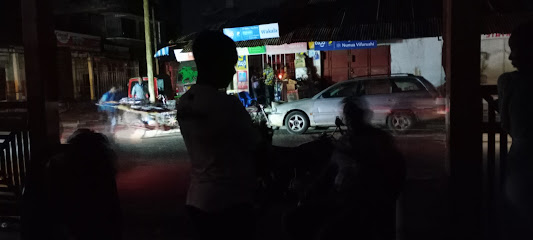
DM Sport Pub
Discover Tanga's nightlife at DM Sport Pub, where local flavors meet vibrant atmosphere and friendly service for an unforgettable experience.
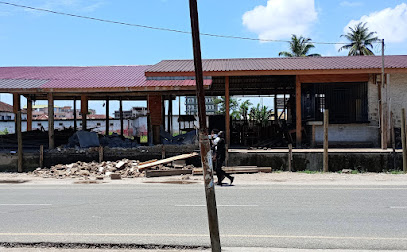
NEW RS PUB
Discover the vibrant nightlife of Tanga at NEW RS PUB, a lively bar with a friendly atmosphere and great drinks to unwind after a day of exploration.

Equator Bar Street 5
Experience the vibrant nightlife of Tanga at Equator Bar, where local culture and refreshing drinks create the perfect atmosphere for relaxation.

The Dreamers pub
Discover the lively atmosphere of The Dreamers Pub in Tanga, where local culture meets vibrant nightlife and refreshing drinks await.
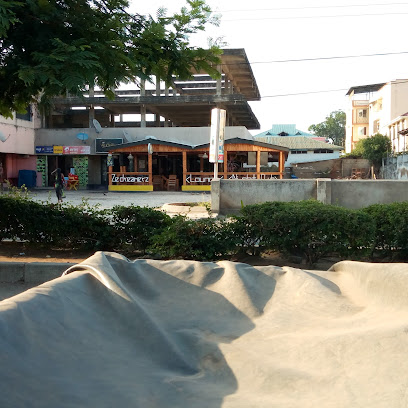
Makundi pub and Guest House Tanga
Discover the lively ambiance of Makundi Pub and Guest House in Tanga, where local culture meets refreshing drinks and friendly faces.
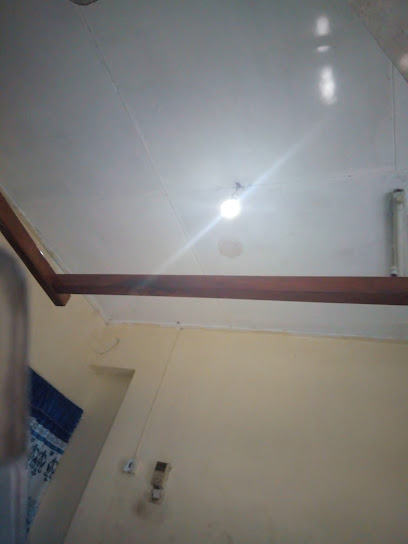
Inn by the Sea Bar
Discover the charm of Tanga at Inn by the Sea Bar, where refreshing drinks meet breathtaking ocean views and local culture.
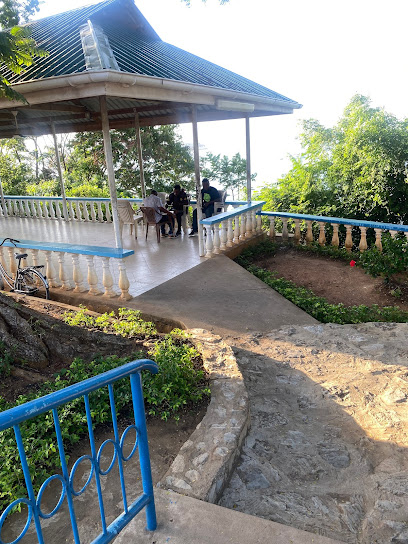
Local Phrases
-
- HelloJambo
[jahm-boh] - GoodbyeKwaheri
[kwah-heh-ree] - YesNdiyo
[n-dee-yoh] - NoHapana
[hah-pah-nah] - Please/You're welcomeTafadhali
[tah-fah-dah-lee] - Thank youAsante
[ah-sahn-teh] - Excuse me/SorrySamahani
[sah-mah-hah-nee] - How are you?Habari yako?
[hah-bah-ree yah-koh] - Fine. And you?Nzuri. Na wewe?
[nzoo-ree. nah weh-weh] - Do you speak English?Unasema kiingereza?
[oo-nah-seh-mah keen-geh-reh-zah] - I don't understandSielewi
[see-leh-wee]
- HelloJambo
-
- I'd like to see the menu, pleaseNingependa kuona menyu, tafadhali
[ning-eh-pen-dah kwoh-nah meh-nyoo, tah-fah-dah-lee] - I don't eat meatSiwi nyama
[see-wee nyah-mah] - Cheers!Mambo!
[mahm-boh] - I would like to pay, pleaseNingependa kulipa, tafadhali
[ning-eh-pen-dah koo-lee-pah, tah-fah-dah-lee]
- I'd like to see the menu, pleaseNingependa kuona menyu, tafadhali
-
- Help!Usaidizi!
[oo-sai-dee-zee] - Go away!Nenda zako!
[nen-dah zah-koh] - Call the Police!Piga simu polisi!
[pee-gah see-moo poh-lee-see] - Call a doctor!Piga simu daktari!
[pee-gah see-moo dahk-tah-ree] - I'm lostNimepotea
[nee-meh-poh-teh-ah] - I'm illNinaumwa
[nee-nah-oom-wah]
- Help!Usaidizi!
-
- I'd like to buy...Ningependa kununua...
[ning-eh-pen-dah koo-noo-noo-ah] - I'm just lookingNatafuta tu
[nah-tah-foo-tah too] - How much is it?Bei ni kiasi gani?
[bay nee kya-see gah-nee] - That's too expensiveHiyo ni ghali sana
[hee-yoh nee gah-lee sah-nah] - Can you lower the price?Unaweza kushusha bei?
[oo-nah-weh-zah koo-shoo-shah bay]
- I'd like to buy...Ningependa kununua...
-
- What time is it?Saa ngapi?
[sah nah-gah-pee] - It's one o'clockNi saa moja
[nee sah moh-jah] - Half past (10)Saa mbili na nusu
[sah mbee-lee nah noo-soo] - MorningAsubuhi
[ah-soo-boo-hee] - AfternoonMchana
[m-chah-nah] - EveningJioni
[joh-nee] - YesterdayJana
[jah-nah] - TodayLeo
[leh-oh] - TomorrowKesho
[keh-shoh] - 1Moja
[moh-jah] - 2Mbili
[m-bee-lee] - 3Tatu
[tah-too] - 4Nne
[n-neh] - 5Tano
[tah-noh] - 6Sita
[see-tah] - 7Saba
[sah-bah] - 8Nane
[nah-neh] - 9Kenda
[keh-n-dah] - 10Kumi
[koo-mee]
- What time is it?Saa ngapi?
-
- Where's a/the...?Iko wapi...?
[ee-koh wah-pee] - What's the address?Anwani ni ipi?
[ahn-wah-nee nee ee-pee] - Can you show me (on the map)?Unaweza kunionyesha (kwenye ramani)?
[oo-nah-weh-zah koo-nee-oh-nyeh-shah kweh-neh rah-mah-nee] - When's the next (bus)?Basi lifuataje?
[bah-see lee-foo-ah-tah-jeh] - A ticket (to ....)Tiketi (kwenda ....)
[tee-keh-tee kwehn-dah]
- Where's a/the...?Iko wapi...?
History of Tanga
-
Tanga, located on the northeastern coast of Tanzania, has a history that dates back to ancient times. Archaeological findings suggest that the area was inhabited by various Bantu-speaking communities as early as the 1st millennium CE. These early settlers were engaged in farming, fishing, and trade, primarily along the Indian Ocean.
-
In the 8th century, Tanga became part of the Swahili Coast, a region known for its prosperous trading cities. The city emerged as a significant trading hub, engaging in commerce with Persia, Arabia, India, and later Europe. Goods such as ivory, gold, and enslaved people were traded for spices, textiles, and other commodities. The influence of Arab traders led to the widespread adoption of Islam in the region.
-
During the 17th century, Tanga fell under the control of the Sultanate of Oman. The Omani influence introduced new architectural styles and further solidified Islam's presence in the region. The city was an important administrative center under the Omani rule, which lasted until the mid-19th century.
-
In 1885, Tanga became part of German East Africa. The Germans developed the city as a strategic port and administrative center. They built infrastructure such as roads, railways, and buildings, many of which still stand today. The town was the site of the first action in the East African Campaign during World War I, with the Battle of Tanga in 1914 marking a significant event in the city's history.
-
After Germany's defeat in World War I, Tanga came under British control as part of the League of Nations mandate. The British continued to develop the city's port facilities and infrastructure. During this period, Tanga became a crucial export point for sisal, a key cash crop for the region.
-
Tanga became part of the independent nation of Tanzania in 1961. Since independence, the city has grown and diversified economically. While it remains an important port, Tanga has also developed industries such as cement production and fishing. Cultural and historical sites, including colonial-era buildings and ancient Swahili ruins, attract tourists from around the world.
Tanga Essentials
-
Tanga is accessible by air, road, and sea. The nearest airport is Tanga Airport (TGT), which has regular flights from Dar es Salaam and other major cities in Tanzania. Alternatively, you can fly into the larger Kilimanjaro International Airport (JRO) and take a bus or taxi to Tanga, which is roughly a 5-hour drive. Buses and coaches from Dar es Salaam to Tanga are also available and provide a scenic route along the coast. For those traveling by sea, there are ferries and boats that connect Tanga with Zanzibar and other coastal cities.
-
Within Tanga, you can get around using various means of transportation. Taxis and motorcycle taxis (boda-bodas) are readily available for quick trips around the city. Public minibuses, known as daladalas, are an affordable option for traveling within the city and to nearby areas. Car rentals are also available if you prefer the convenience of driving yourself. For a more traditional experience, you can hire a bicycle or take a leisurely stroll through the city center.
-
The official currency in Tanzania is the Tanzanian Shilling (TZS). While major hotels, restaurants, and shops in Tanga may accept credit cards, it is advisable to carry cash, especially for smaller establishments and markets. ATMs are available in Tanga, but make sure to inform your bank of your travel plans to avoid any issues with card transactions. It's also a good idea to have some US dollars on hand, as they are widely accepted and can be easily exchanged.
-
Tanga is generally safe for tourists, but it is important to take standard precautions. Avoid walking alone at night, especially in poorly lit areas. Be cautious of pickpockets in crowded places such as markets and bus stations. Some areas, such as the port and certain neighborhoods on the outskirts, have higher crime rates. Always keep your belongings secure and stay aware of your surroundings. It's recommended to use reputable taxi services and avoid accepting rides from strangers.
-
In case of emergency, dial 112 for immediate assistance. Tanga has several medical facilities, including Bombo Regional Hospital, which can handle most medical emergencies. It is advisable to have travel insurance that covers medical emergencies. For minor health issues, there are pharmacies throughout the city where you can purchase over-the-counter medications. For police assistance, the main police station in Tanga is located in the city center.
-
Fashion: Do dress modestly, especially when visiting religious sites. Avoid wearing revealing clothing. Religion: Do respect local customs and traditions. Remove your shoes before entering homes and places of worship. Public Transport: Do be respectful and give up your seat to elderly passengers. Don't eat or drink on public transport. Greetings: Do greet people with a handshake. A friendly 'Jambo' (Hello) is appreciated. Eating & Drinking: Do try local delicacies and accept food offerings graciously. Don't refuse hospitality, as it is considered impolite.
-
To experience Tanga like a local, visit the local markets such as the Ngamiani Market, where you can buy fresh produce and traditional Tanzanian goods. Engage with locals, as they are often friendly and willing to share stories about the city's history and culture. Don't miss visiting the Amboni Caves, a fascinating natural attraction. For a unique experience, take a dhow boat tour along the coastline, offering stunning views of the Indian Ocean.
Nearby Cities to Tanga
-
Things To Do in Diani Beach
-
Things To Do in Stone Town
-
Things To Do in Zanzibar City
-
Things To Do in Mombasa
-
Things To Do in Dar es Salaam
-
Things To Do in Malindi
-
Things To Do in Morogoro
-
Things To Do in Moshi
-
Things To Do in Arusha
-
Things To Do in Lamu
-
Things To Do in Dodoma
-
Things To Do in Iringa
-
Things To Do in Singida
-
Things To Do in Nairobi
-
Things To Do in Naivasha









